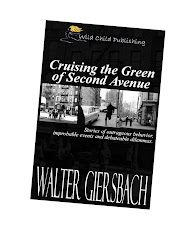 |
| Curt Harnack, 1927-2013 |
The Iowa experience may be, as English Professor Sheldon Zitner told us back in ’60, “soft cultural primitivism”—simply nostalgia for the good old days. Those days may not have been very good or even very old, but being at Grinnell was an academic oasis not unlike that portrayed by Herman Hesse’s fictional Magister Ludi. Today, my life is relieved by the Internet and confounded by computer viruses, made safer by medical breakthroughs but scared into insensibility by TV commercials for spurious pharmaceuticals. I wonder at times if I’m really ready to go into the 21st century, or whether I could go back to a softer time when the big decision meant deciding between an order of corn chowder or a pork loin sandwich.
Classmates from the ’60s would ask if I’d read Harnack, who went on to take a Master’s at Columbia, teach English at Grinnell (1952-56), and become executive director of Yaddo, the writeing colony at Saratoga Springs. I hadn’t. A former classmate mentioned him again last year, so I finally bought The Attic. I’m not a great fan of memoirs, although I’ve written some. (“Tenting Tonight on the Chautauqua Circuit” appeared in The Copperfield Review, Jan. 2005, http://www.copperfieldreview.com/non_fiction/chautauqua_circuit.htm ). The Attic, however, successfully defines and then fulfills its mission: “One writes a memoir,” Harnack writes, “to discover what recollection of a time or particular event might reveal, seeking to make the personal into something universal to which unknown readers might relate.”
The book’s form introduces the reader to his hometown and farm through the journalistic device of closing up his family’s homestead. It devolves somewhat lengthily into an examination of relatives he grew up with—including a genealogical table—but this offers perspective from many different points of view.
There’s a third reason for my appreciating the book and author. Harnack is the solid and memorable writer I wish I could be. Describing “The Glorious Fourth,” he writes, “Once upon a time we citizens felt impelled to demonstrate with Fourth-of-July hoopla that America had been strong enough to make a country for itself, and the smallest popping ladyfinger suggested the shots fired at Lexington and Concord. Now [after World War II] nobody in the world needed to be told.”
I wish I’d said that.



No comments:
Post a Comment